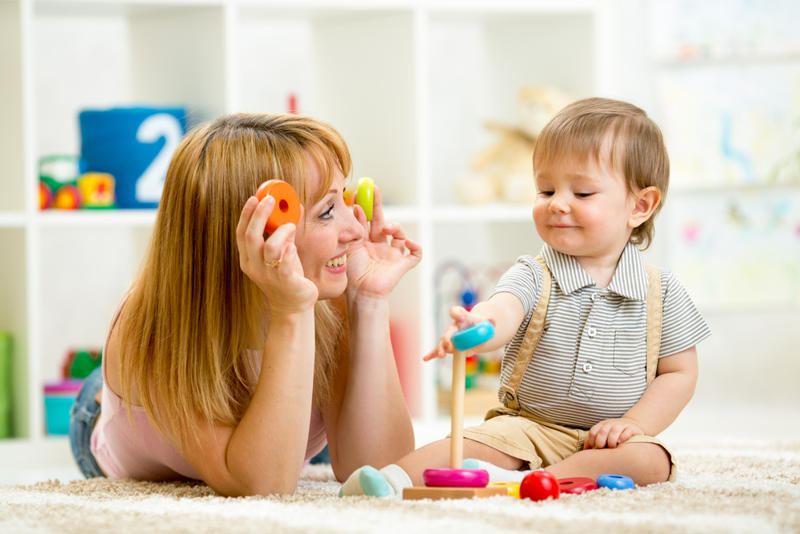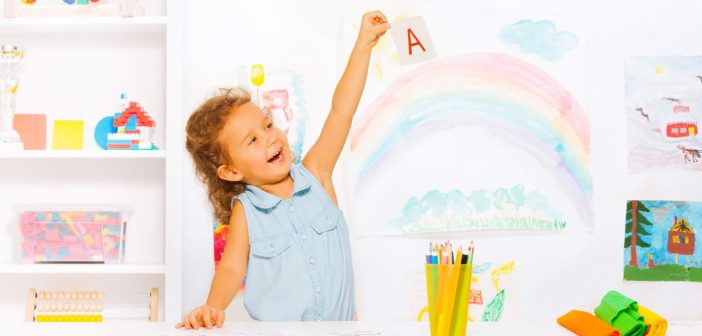As parents, we often fret over our child’s development. French Psychologist Jean Piaget’s theory on the four stages of a child’s cognitive development provides a blueprint to a child’s brain and how it develops. After reading the following you will know what to expect from your child at different stages and how you can contribute as a parent to his/her cognitive development through certain activities and behaviors.
The first stage: Sensorimotor stage (0-2years)
A child understands his/her world through his/her senses. Reflexes such as sucking, grasping and reaching are the focus in this period. You can see the development of primary circular, which are activities focused on the child’s body and is repetitive in nature. Recognizing cause-and-effect relationships is the final frontier of this stage. You can promote your child’s cognitive development in this stage by providing a stimulus-rich environment. Some of the most effective and easy activities are:
- Squeak toys help establish a cause-and-effect relationship. The child may be surprised by the sound at first but eventually realizes the sound is made by his/her squeaking of the toy. Container play is another such cause-and-effect game wherein the child can put objects in and out of a container.
- Stacking
 blocks with a helpful partner is a great opportunity for turn-taking, problem-solving, developing motor skills, and learning
blocks with a helpful partner is a great opportunity for turn-taking, problem-solving, developing motor skills, and learning
constructive play behaviors. - Playing peek-a-boo is a perfect game to establish object permanence, which is the understanding that an object exists even when it can’t be seen.
The second stage: Preoperational period (2-7years)
Transductive reasoning, egocentrism, and conservation are characteristic of this age group. Transductive reasoning involves making inferences from one specific to another based on faulty logic. Egocentrism is simply a lack of empathy towards others, which can be mended by putting children in the other’s “shoes”. The following activities are beneficial at this stage:
- Encourage the child to play characters and roles such as playing house. Children observe different roles in their lives and enacting them gives them perspective.
- Let your child play with toys that change shape (such as playdoh, sand, clay, and water) as this promotes the concept of conservation.
- Physical, hands-on practice with facts and skills is crucial. Use cut-out letters to build words.
- Choose lessons from the child’s world and steer away from using workbooks or paper and pencil activities too often.
The third stage: Concrete operations (7-12 years)
In this stage, children migrate to more rule-regulated thinking. Some of the rules of logic include reversibility, identity, and compensation. You can do certain activities to promote this development:
 Baking is an activity that requires measuring and encourages the principle of conservation.
Baking is an activity that requires measuring and encourages the principle of conservation.- Allow your child to manipulate objects and test out ideas.
- Do simple experiments, with a limited number of steps.
- Read from books with a limited number of characters
- Help your child classify objects and ideas on complex levels.
The fourth stage: Formal Operations (12+ years)
At this stage, adolescents can do abstract thinking, reason from known principles, consider many points of view and think about their process of thinking. Only 35 percent of high school graduates in industrialized countries obtain formal operations. You can promote formal thinking in your teenager.
 Engage your adolescent in discussions on varied topics, issues, and current events.
Engage your adolescent in discussions on varied topics, issues, and current events.- Create opportunities for them to share ideas and thoughts with you.
- Allow him/her to think independently and develop his/her own ideas.
- Help them set goals.
- Challenge him/her to think about future possibilities.
- Compliment him/her for smart decisions.
- Set an example of how to think through difficult situations. This is an important cognitive milestone.
- Encourage them to play decision-making and strategy games like solitaire, checkers, Scrabble, or chess.
By understanding normal development, you can choose toys and activities according to your child’s needs. You can also tell when your child may be lagging behind peers. However, remember that every child is different. So read up, stay informed and enjoy every stage of your child’s growth.







